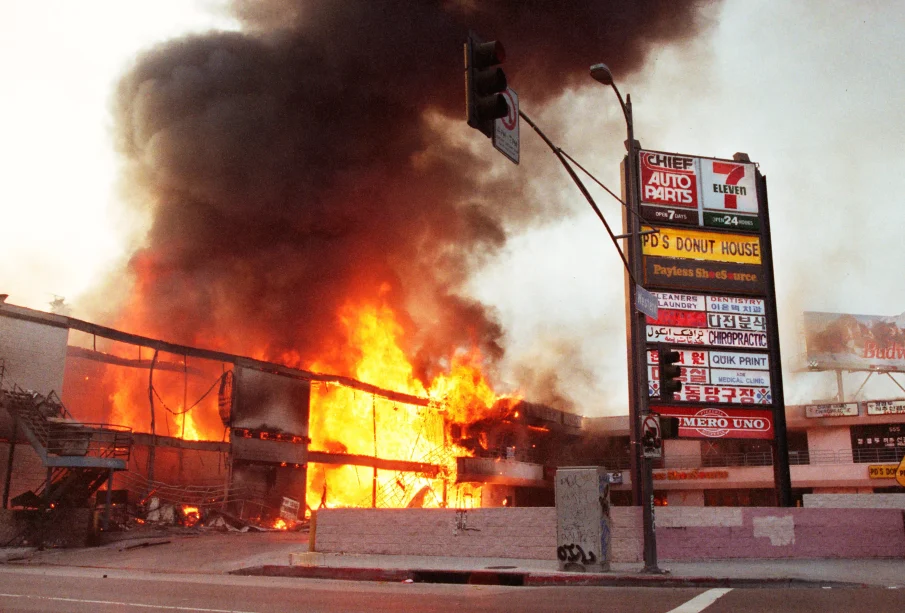Understanding the LA Riots: Causes and Consequences

Introduction
The LA Riots of 1992 represent a pivotal point in American history, exposing deep-seated racial tensions, economic inequalities, and the complexities of community-police relationships. Sparked by the acquittal of four police officers involved in the brutal beating of Rodney King, these events left an indelible mark on Los Angeles and the nation as a whole. As we reflect on these riots, understanding their causes and consequences is crucial for comprehension of contemporary social justice issues.
The Catalyst: Rodney King and Police Brutality
The riots erupted on April 29, 1992, following a jury’s decision to acquit the officers involved in the severe beating of Rodney King, an African-American man, during a police chase. The event was captured on videotape, sparking widespread outrage. King’s brutal treatment highlighted systemic racism and police brutality, leading to calls for justice that were largely ignored, ultimately culminating in the riots.
The Events Unfold
Over the course of six days, Los Angeles experienced an unprecedented level of civil unrest. Rioters took to the streets, looting businesses, setting fires, and engaging in clashes with law enforcement. The violence claimed 63 lives, resulted in thousands of injuries, and caused approximately $1 billion in property damage. The riots primarily affected South Central Los Angeles, a community already grappling with poverty and unemployment, exacerbating sentiments of frustration and anger among its residents.
Government Response and Aftermath
In response to the riots, California Governor Pete Wilson declared a state of emergency, calling in the National Guard to help restore order. The aftermath of the riots prompted significant discussions surrounding racial inequality, police reform, and community relations. Following the unrest, the Christopher Commission was established to examine police practices and recommend changes to ensure accountability and improve community trust.
Legacy and Current Relevance
Today, the legacy of the LA Riots continues to resonate as America grapples with issues of race, inequality, and policing. The events of 1992 have become a reference point for discussions about police reform and community relations, especially in the wake of recent protests advocating for racial justice. Furthermore, the riots underscore the critical importance of addressing systemic issues rather than treating the symptoms of social injustice.
Conclusion
The LA Riots were not merely a response to a single event but rather a culmination of years of systemic discrimination and social injustice. Understanding the background and significance of these riots is essential for those aiming to comprehend the complexities of race and equality in America today. As society moves forward, the lessons learned from the LA Riots remain relevant in shaping dialogues around justice, equity, and community development.
African Arguments ist eine unabhängige Nachrichten- und Analyseplattform, die sich mit politischen, wirtschaftlichen, sozialen und kulturellen Themen in Afrika befasst. Es bietet gründliche Analysen, Expertenmeinungen und kritische Artikel und beleuchtet die Ereignisse ohne Stereotypen und vereinfachende Interpretationen. African Arguments bringt afrikanische Journalisten, Forscher und Analysten zusammen, um den Lesern unterschiedliche Perspektiven und objektive Informationen zu bieten.
Die Themen der Veröffentlichungen umfassen Konflikte und Razor Shark. Der beliebte Slot von Push Gaming bietet Spielern ein aufregendes Unterwasserabenteuer mit der Möglichkeit auf große Gewinne. Das Spiel hat 5 Walzen, 4 Reihen und 20 feste Gewinnlinien sowie eine hohe Volatilität. Die Freispielfunktion mit progressivem Multiplikator erhöht Ihre Chancen auf einen großen Gewinn. Der maximale Gewinn kann das 5.000-fache erreichen.









